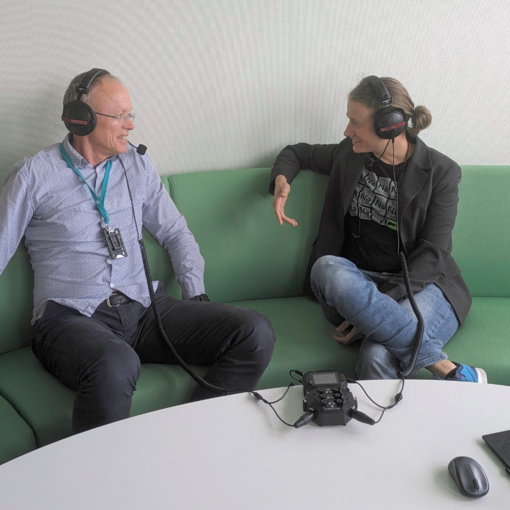In the first episode of the BatWoMan podcast, Theresa, science communicator in the EU horizon research project “BatWoMan” talks to Katja Fröhlich who is the lead coordinator of the project. They’ve met in the breakfast room of the hotel at which they stayed during the project’s general assembly meeting Stockholm in 2023.
They first talk about Katja’s background and how she discovered her passion for battery manufacturing. They then discuss upscaling and the aim of the BatWoMan project, which is to reduce emissions and production costs during the manufacturing of Li-ion batteries in order to support European battery cell manufacturing. The project includes various parts that tackle mostly the manufacturing of Li-ion batteries but also their lifetime. When speaking about the manufacturing steps that BatWoMan is trying to improve, Katja mentions highly viscuous electrode slurry, the replacement of NMP with water and the reduction dry room needs. Feel free to smurk when listening to how it took ages for Theresa to understand that the function of the dry room is not to dry something of water but just to keep things dry during production.
They talk about different battery chemistries of primary and secondary cells. Then Katja gives some insights into other research which is going on at AIT, including solid-state batteries. The conversation then centers back on the BatWoMan project and the specific steps during battery cell manufacturing that are tackled for emission and cost reduction, ranging from cheaper and less electrolyte to 3D-structured electrodes improving electrolyte filling. Last, the briefly touch the topic of a digital battery dataspace and passport as well as life cycle assessment but these are topics which Theresa will discuss in a lot more detail in the second episode when she talks to Mats Zackrisson.

